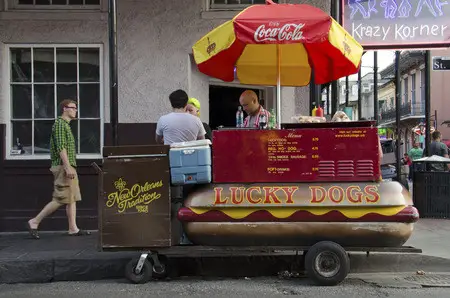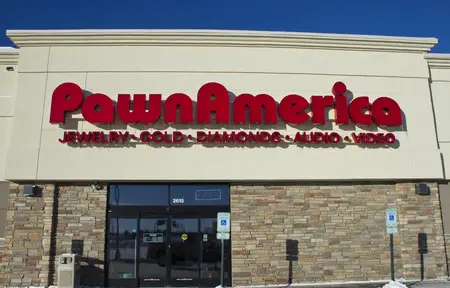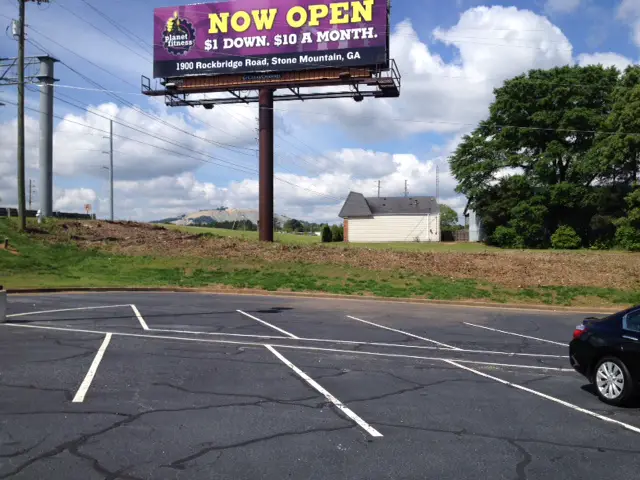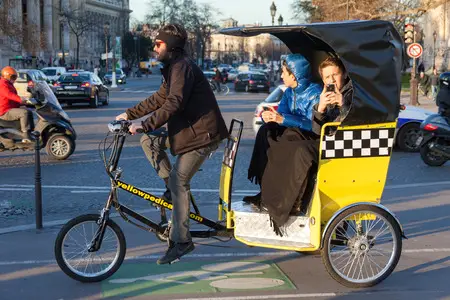Legal Monopolies – Invest in a Business with No Competition
No Better Example than Lucky Dogs
Anyone who has spent time on Bourbon Street in New Orleans will notice the ubiquitous Lucky Dog hot dog carts that seem to be everywhere. The other thing someone will notice is that there don’t seem to be any other hot dog carts…or any other kind of food cart vendors whatsoever…anywhere in the French Quarter. There is a good reason for this; it is illegal for any other food truck vendor to operate in the French Quarter.
Exclusivity Rooted in a Law from the 1970’s
In the early 1970’s, the New Orleans City Council wanted to clamp down on all the unsavory street vendors that were harassing tourists and spoiling the beauty of the French Quarter. They passed a law that removed hot dog vendors from the list of permitted street vendors. Any hot dog vendor that had been operating continuously in the French Quarter for 8 years prior to January 1, 1972, would be permitted to remain (they were grandfathered in).
This excluded every hot dog vendor from ever operating in the French Quarter EXCEPT Lucky Dogs, Inc. It was probably written this way on purpose; Lucky Dog stands were looked fondly upon and had become a part of New Orleans culture. Even so, legal challenges against this ordinance failed and the ordinance has remained in tact for over 40 years. Obviously, this legal monopoly has been beneficial to the owner of Lucky Dogs. There are other legal monopolies out there.
A few other examples….
-
Parking
– some beach towns only allow one concessionaire to operate all city parking lots or street parking. In some other areas, a single parking lot owner may be grandfathered in and the zoning will no longer allow for parking lots.
-
Billboards
– billboard ordinances are often written in such a way that it is impossible to get a new permit in a particular town or county. For instance, they may require 1500 feet of spacing between billboards on a particular side of the freeway. There may literally not be a single spot that qualifies because of the existing billboards that are already there.
-
SiriusXM Satellite Radio
– the FCC allowed Sirius and XM to merge, granting them a monopoly as the only satellite radio companies permitted to operate in the US. That being said, this business has so much competition from regular radio that it doesn’t seem to benefit that much.
-
Utilities
– in rural areas, there may only be one water company. Unless you want to haul water, you have to use the government-approved company. In Hawaii, Hawaii Electric Company (HECO) has been the only electric company in Hawaii for over 100 years.
-
Gaming
– sometimes a state will only license one casino or one horse track in a particular area. States often grant themselves a monopoly with state-owned casinos, but unfortunately there is no way to invest in that business.
Legal monopolies are not easy to find and the ones that are out there may have no profitable entry point. However, there will probably still be legal monopolies carved out in the future, and for their owners, they are likely to be extremely beneficial. I seriously doubt that is any comparable hot dog vending company that makes money like Lucky Dogs.





